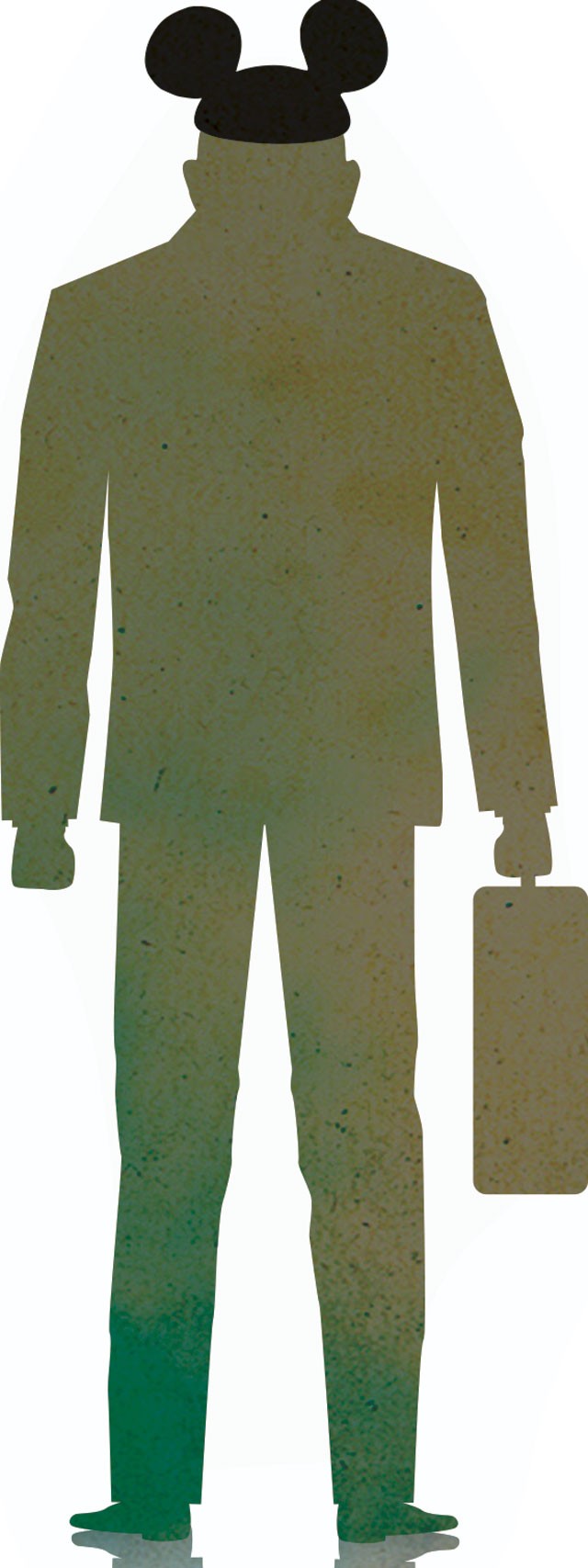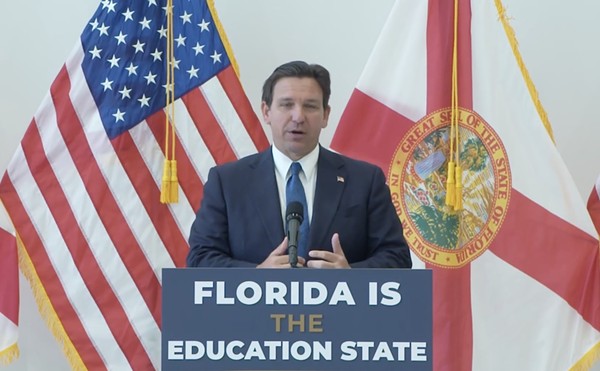"Heavily influenced by various strange outings I endured as a boy with my father – who at the time lived in Orlando, Fla. – Escape From Tomorrow is my personal attempt to make sense of what felt like a very artificial childhood, brought on by our cultural obsession with these fake, manufactured worlds of so-called fantasy. … The film is really about defining the word 'escape' and how so many American households seek it out in a yearly pilgrimage to a materialistic Mecca." – From the director's statement about Escape From Tomorrow
"I hope that every human being on the planet sees Escape From Tomorrow!" That's what director Randy Moore told Filmmaker magazine recently, when asked what kind of audience he hoped to reach with his first feature film, which debuted at Sundance last week. "Who honestly doesn't want that for their first film?"
But Moore had to know early on that he was taking a chance that his movie – his first feature-length film – might never see the light of day. He made Escape on the down-low and took pains to keep his project secret, even relocating to South Korea to do some of the editing, lest anyone outside his inner circle find out what, exactly, he was working on. In a recent interview with the Los Angeles Times (which devoted a surprisingly lengthy story to Escape last week) he acknowledged that he does have some concern about how Disney will react once it reviews his movie.
Most early speculation about the ambitious film made by this rogue director – a valedictorian graduate of Full Sail University, by the way – is that it'll never see wide release. Critics speculate that Disney, which is fiercely protective of its privacy and intellectual property, will lawyer up and take the indie filmmaker down before Escape gets out of Park City.
"Walt Disney's lawyers are probably climbing onto helicopters and planning a raid on Park City right now," film critic Drew McWeeny wrote on hitfix.com after seeing the movie last week.
"The movie, while careful to leave out certain copyrighted material (like the "It's a Small World" song), would seem to test the limits of fair use in copyright law," the Los Angeles Times said.
CNN reported that Disney is actually "weighing whether to quash the film or to let it slide," though it failed to provide any evidence or comment from Disney indicating that it is actually formulating any response whatsoever.
Regardless, most people – the Los Angeles Times, film blogs and the New York Times included – seem to think that the movie's shelf life will be brief. Whether Disney actually has a strong case or not, it's got the money and power to put an indie outfit out of commission for good. "Disney has enough of a case that it would be able to sue the filmmakers and distributors into the Stone Age," says Paul Rapp, a Massachusetts-based copyright attorney who advises organizations, businesses and individuals working in creative fields. "Whether they won, if someone had the resources to fight back, is another thing. Tim Wu had a great article in the New Yorker making the case that it would be fair use from both a copyright and trademark perspective, which I generally agree with. But I think the most vulnerable spot is that the filmmakers most likely violated the terms of the admission ticket."
We contacted Walt Disney World public relations to ask for comment on Escape From Tomorrow, but even after talking to two representatives who promised to return our calls and emails, we had no comment from the corporate office as of press time. Even our questions asking for general clarification of the terms of admission to the parks or Disney's policy on filming on its property were ignored. And we're not the only ones – so far, Disney has refused to comment to any media outlet at all, except to acknowledge that it knows that the film exists.
Maybe that's because the company knows that, while it may not like the film that Moore and company put together, and may not agree with how they executed it, it wouldn't be in anyone's best interests to make a big production over it. Particularly because, as Wu points out in his New Yorker piece, while Disney certainly has the resources to sue, Moore's movie is more than likely going to be considered fair use by a court.
"Though the filmmakers may have committed trespass when they broke Disney World's rules and if it violated the terms of entry on their tickets, the film itself is a different matter," Wu writes. "As commentary on the social ideals of Disney World, it seems to clearly fall within a well-recognized category of fair use, and therefore probably will not be stopped by a court using copyright or trademark laws."
So if Disney did sue, it'd be less about making a legitimate infringement case and more about using its unlimited resources to censor an artist and create a chilling effect that would keep anyone from trying to pull off such a stunt again. That might not be in the company's best interest, says Rapp.
"[Escape] has gotten enough publicity that maybe Disney will back off, lest it end up looking like a bully again," he says.
It wouldn't be in the public's best interest either.
"Disney would surely have preferred that Moore and his team have asked for permission before making the film. But it seems unlikely to have been granted," Wu writes. "And a world where Disney gets to determine everything said about Disney World would be a poor place indeed."



















